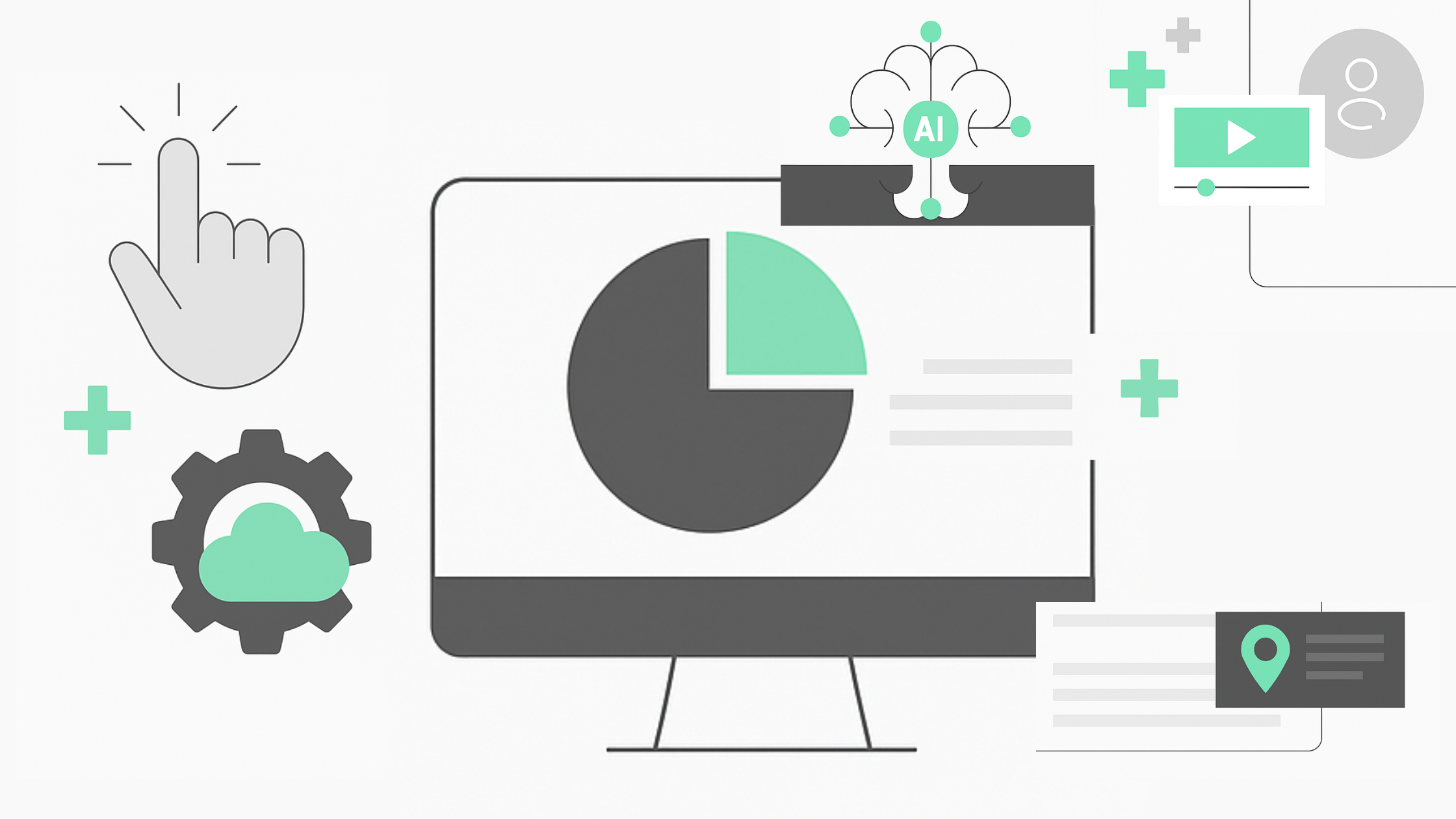Is The Future AI?
Artificial Intelligence (AI) has been a topic of interest and debate for decades, with many experts predicting that it will play a significant role in shaping the future. Not so long ago, AI was just a concept from science fiction. Now, it's already a reality that is rapidly changing how we live and interact with the world around us. From self-driving cars to virtual personal assistants, AI is becoming increasingly dominant in everyday life.
These changes bring uncertainty about what the future of tech will look like. Will AI take over human jobs? Is it ethical? And how can businesses harness this innovative tool to drive growth? In this article, we’ll delve into the predictions and possibilities of the future of AI, exploring how it might continue to shape our world.
How AI Changes the Way We Live
One of the most significant predictions for the future of AI is the creation of accurate "artificial general intelligence" (AGI). Through machine learning that can perform any intellectual human task, there have been significant breakthroughs in AI development with far-reaching implications for society, the economy, and our way of life.
With the increasing use of AI in various industries, like healthcare, finance, and transportation, AI-powered systems analyze data and predict results. Doctors can more accurately diagnose diseases; finance experts can identify fraudulent transactions; and transportation routes are optimized to reduce fuel consumption and improve safety.
Additionally, AI transcends corporate use; AI-powered robots and drones are predicted to dominate manufacturing, logistics, and other industries, which could significantly increase productivity. In entertainment, virtual reality and augmented reality technologies are creating more realistic and engaging experiences with the advancement in AI.
With AI-powered virtual assistants and chatbots becoming even more sophisticated, users can interact with them in more natural and intuitive ways. As this technology advances, so does its potential to revolutionize the future. The implications of this have raised many questions, like whether AI will replace humans, particularly in industries that rely on repetitive or routine tasks.
How AI Benefits Businesses
AI has contributed immensely to the development of many industries, and businesses are increasingly turning to AI to boost their growth. From automating routine tasks to providing valuable insights, AI transforms how companies operate and grow. Here are some ways AI can help boost your business:
- Streamline Processes: One of the most significant advantages of AI is that it can automate and streamline many business processes, freeing up time and resources for other tasks. For example, AI can automate repetitive tasks like data entry, allowing employees to focus on higher-value activities that drive growth.
- Customer Experience: A personalized and seamless customer experience is critical to customer retention and growth. With AI-powered chatbots, businesses can provide instant and accurate customer support, improving the customer experience and helping to build brand loyalty.
- Predictive Analytics: By using AI to analyze data, businesses gain valuable insights that could be difficult for humans to uncover. This helps companies make better decisions and create targeted marketing strategies for increased growth. For example, using analytics to identify customer patterns and preferences allows businesses to create targeted marketing campaigns that resonate with customers.
- Increased Efficiency: AI can streamline business processes and improve efficiency, reducing costs and increasing productivity. For example, AI-powered supply chain management systems can automate the ordering and distribution of products, reducing the risk of stock shortages and improving the speed of deliveries.
- Competitive Advantage: By embracing AI, businesses can gain a competitive advantage. AI can help enterprises to operate more efficiently, provide better customer experiences, and make data-driven decisions to keep them ahead of the competition.
AI has the potential to revolutionize operations and customer interactions by offering businesses a range of benefits that drive growth and success.
AI and Ethics
As AI continues to grow rapidly and transform the way we live and work, there are some concerns and ethical questions about its potential negative impacts:
- Job Loss: One of the critical ethical questions related to AI is its impact on employment. As AI becomes increasingly sophisticated, it has the potential to replace human workers in various industries; this would lead to widespread job loss as well as the potential for increased income inequality and poverty.
- Privacy and Data Protection: AI often relies on vast amounts of user data to train models and make accurate predictions, raising concerns about privacy and data protection. In this context, businesses risk handling customer data irresponsibly, either by not obtaining informed consent from users or by using data in ways that compromise individuals' privacy or violate applicable regulations.
- Bias and Fairness: AI systems can inadvertently perpetuate biases present in the data they are trained on, leading to discriminatory outcomes. Because the majority of AI is trained on historical data, biased AI can disproportionately affect marginalized groups and reinforce existing social inequalities
- Transparency and Explainability: AI algorithms often operate as black boxes, making it challenging to understand how they arrive at their decisions. A lack of transparency can erode trust and raise concerns about accountability, because it does not provide a clear rationale of how decisions are made
- Security and Malicious Use: AI systems can be vulnerable to attacks or manipulation, potentially leading to malicious uses that harm individuals or organizations. Without optimizing the security of their AI systems, businesses risk unauthorized access, manipulation, or exploitation of AI technologies.
How to Ethically Leverage AI for Business Growth
It's crucial to adopt ethical practices while integrating AI into your business operations to ensure it is used responsibly. Here are some guidelines for ethically leveraging AI to grow your business:
Define clear goals and values
Before implementing AI, establish a clear understanding of your business goals and the values you want to uphold. This will help guide your AI strategy and ensure that it aligns with your company's mission and ethical standards.
Prioritize data privacy and security
Protecting data privacy and security should be a top priority. Establish robust data protection measures, including encryption, access control, and regular security audits. Obtain informed consent from users when collecting their data, and be transparent about how it will be used.
Mitigate bias
Since AI systems are susceptible to bias, taking steps like training them with diverse and representative datasets, regularly auditing models for bias, and addressing any identified biases promptly can help keep this in check.
Be transparent
Aim for transparency in how your AI systems make decisions. Customers and stakeholders should understand how AI is being used and the factors influencing its outcomes. Whenever possible, provide explanations or justifications for AI-driven decisions to build trust and ensure accountability.
Don’t forego human oversight and accountability
Maintain human oversight in AI-driven processes. While AI can automate tasks and make predictions, it should not replace human judgment entirely. Humans should be responsible for reviewing and validating AI outputs, especially in critical areas such as customer service, legal matters, and ethical considerations.
Monitor and audit regularly
Continuously monitor the performance and impact of your AI systems. Regularly evaluate their outputs for accuracy, fairness, and adherence to ethical standards. Conduct independent audits, or seek external expertise, to ensure compliance with ethical guidelines and address any shortcomings.
Maintain a user-centric design
Design AI systems with the user experience in mind. Ensure that AI applications are intuitive, easy to understand, and provide clear value to customers. Avoid deploying AI purely for the sake of technology advancement; instead, focus on solving real-world problems and enhancing user satisfaction.
Continue to learn and improve
AI technologies evolve rapidly, and new ethical challenges may emerge. Stay informed about the latest research and best practices in AI ethics. Encourage a culture of continuous learning and improvement within your organization to adapt to changing ethical considerations and societal expectations.
Educate and empower your employees
Provide your employees with training and education on AI ethics, responsible data use, and the potential biases and risks associated with AI. Encourage them to be proactive in identifying and addressing ethical concerns related to AI systems. Empower your employees to make ethical decisions and raise concerns if they encounter any ethical dilemmas.
While there’s a lot of discussion and varying perspectives about how AI is changing the way we live and its implications, it is possible to leverage AI in a responsible manner, fostering trust with customers, protecting privacy, and avoiding potential pitfalls.
At Outliant, we create customized solutions tailored to your business goals. By harnessing the benefits of AI, we'll help your business explore all its possibilities, drive growth, and improve efficiency. Book a discovery call with our team of experts, and let's transform your business!










